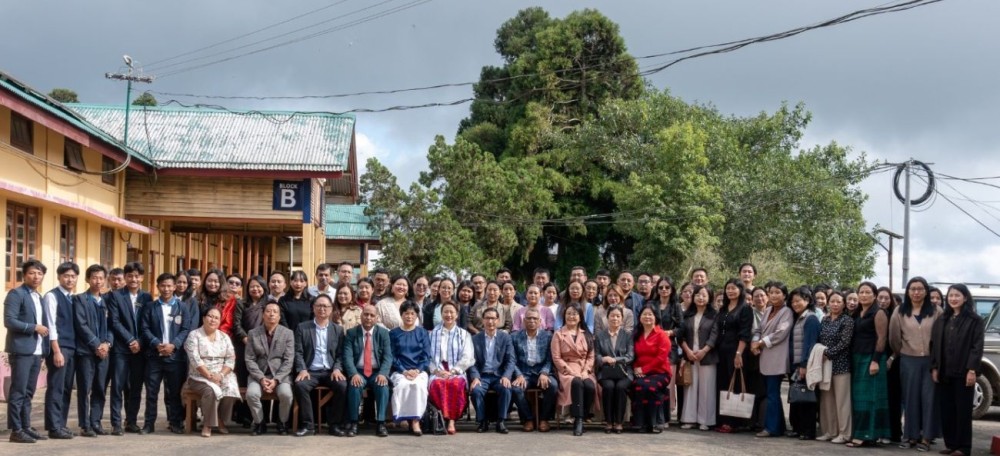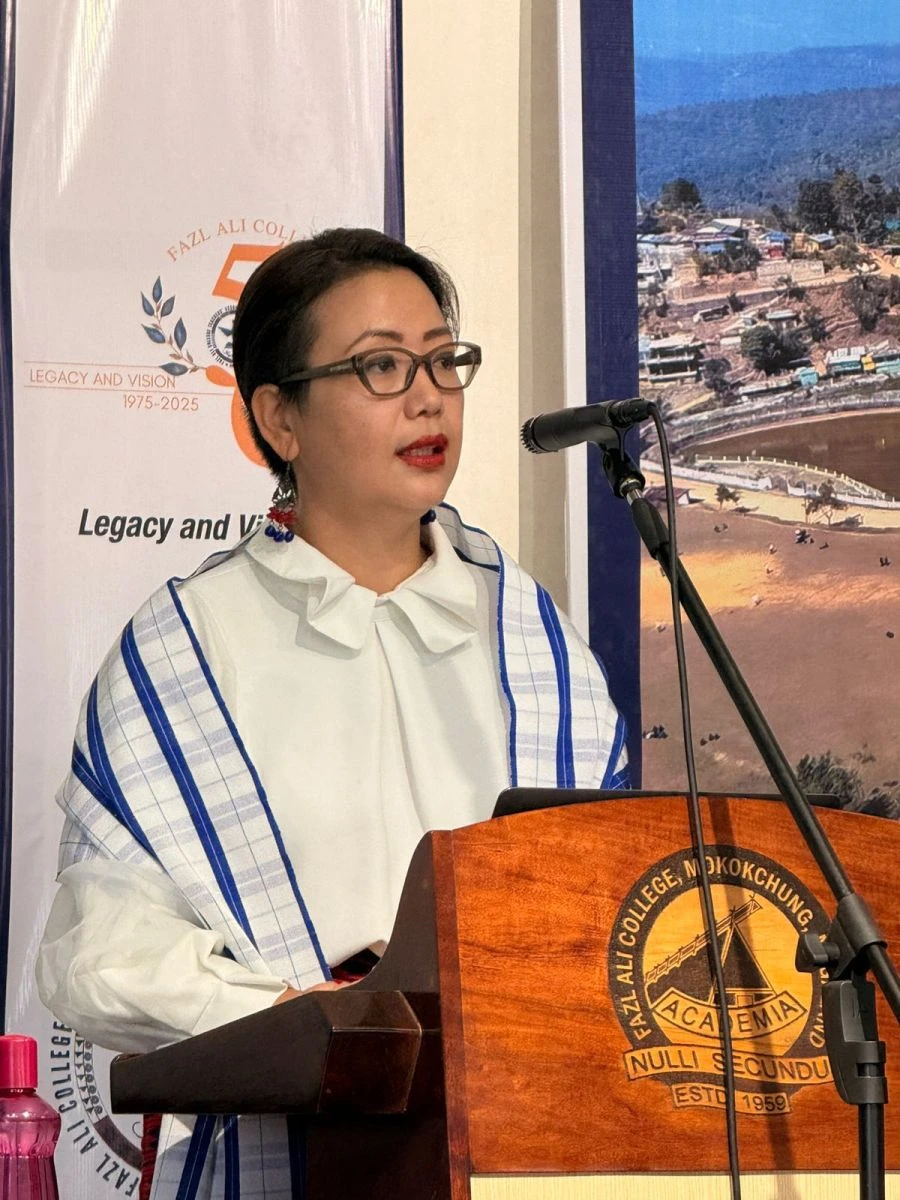Academic Dr Theyiesinuo Keditsu with college Principal, Dr I Wati Imchen, staff and others during the inaugural lecture of Fazl Ali College, Mokokchung on November 3.

Mokokchung, November 3 (MExN): Academic Dr Theyiesinuo Keditsu has called for a fundamental re-evaluation of the term “quality education,” arguing that in the context of Nagaland, it risks becoming an empty slogan unless it is decolonised and rooted in indigenous philosophies.
Speaking at the inaugural lecture of Fazl Ali College, Mokokchung on the topic of “Quality Education for Indigenous Research and Nation-Building,” Dr Keditsu critiqued policies like the National Education Policy (NEP), stating that while they set high ideals, they often become a “mirage” due to a failure to address the “limited support and resources available to educators on the ground.”
Drawing parallels with the unattainable lexicon of slogans like “Nagaland for Christ” and “development,” the poet, academic, and educator questions whether the phrase “quality education” risks becoming another empty ideal.
She situated Nagaland’s educational context within a history of multiple layers of colonisation, by the British, the Church, the Indian state, and current neoliberal market systems. Dr Keditsu asserted that present-day education remains “shaped by colonial frameworks” and requires a deliberate “decolonisation of thought” to allow indigenous philosophies reclaim their legitimacy.
Drawing from the work of her mentor, Prof N Jairam of TISS, she proposed a redefinition of core academic principles through an indigenous lens. She outlined a shift from hierarchical notions to kinship-based existence; epistemology must embrace folk knowledge, oral traditions, and interdependence as valid sources of theory; and methodology must move away from extraction toward relational research that values sharing and community participation.

The academic also highlighted a tension within the NEP, noting a disconnect between its decolonial rhetoric and the centralised systems that perpetuate colonial hierarchies. She suggested that policies must be reinterpreted “against their own grain” to promote genuine plurality.
In Nagaland's current political climate, marked by an opposition-less government, Dr Keditsu identified classrooms as vital spaces for democracy and nation-building, where dialogue can reshape the future.
She concluded by proposing practical pathways forward, including the creation of contextual curricula that “listen to the language of the land,” decolonial teacher training programmes, and community partnerships where locals co-author their narratives.
Dr Keditsu reframed the ultimate goal as “Indigenous Education for Quality Research and Nation-Building,” asserting that every act of learning is an act of world-making.
The annual lecture was organised by the Internal Quality Assurance Cell (IQAC) of Fazl Ali College, Mokokchung on November 3.
Earlier, the lecture session was chaired by Bendangsenla, Coordinator of IQAC, FAC. The Principal, Dr I Wati Imchen, in the introductory note, reflected on the challenges faced by the IQAC committees since its official formation.
He outlined the IQAC’s evolution through its experimental, documentation, and infrastructural growth phases, culminating in its current research-oriented phase marked by academic collaborations, seminars, and MoUs with various institutions. He explained that the inception of this Annual Lecture draws inspiration from the IQAC’s earlier aspirations toward establishing a Centre for Indigenous Research and Nation-Building.






